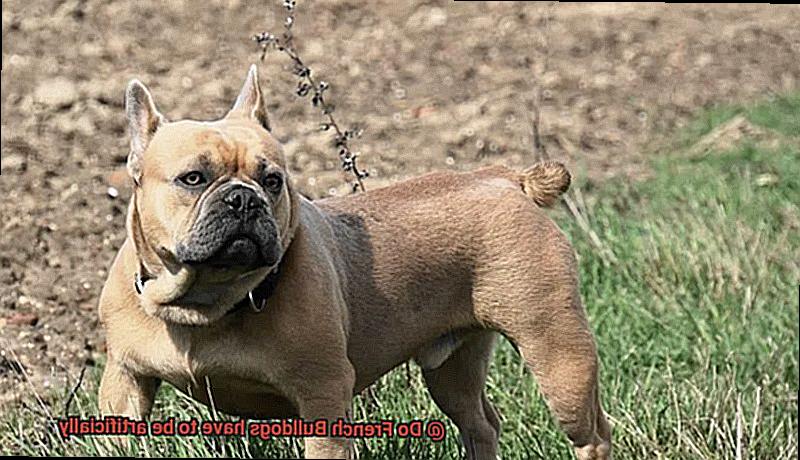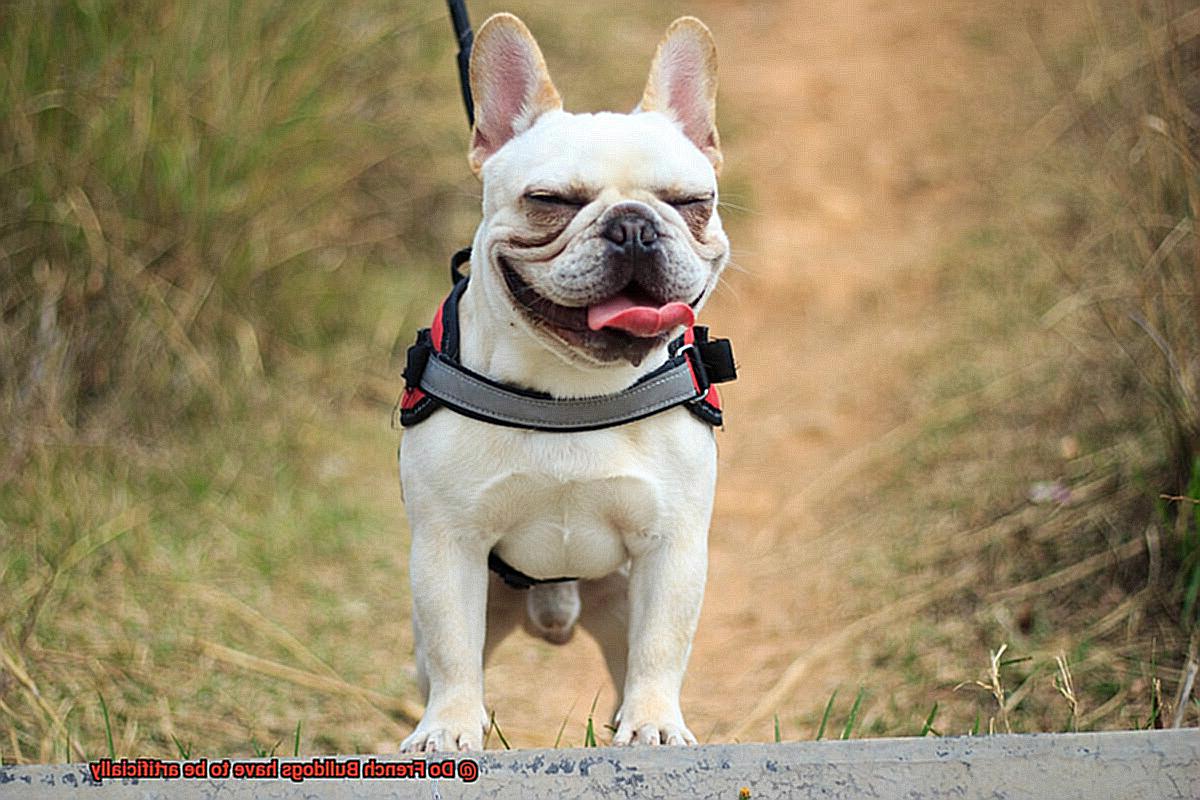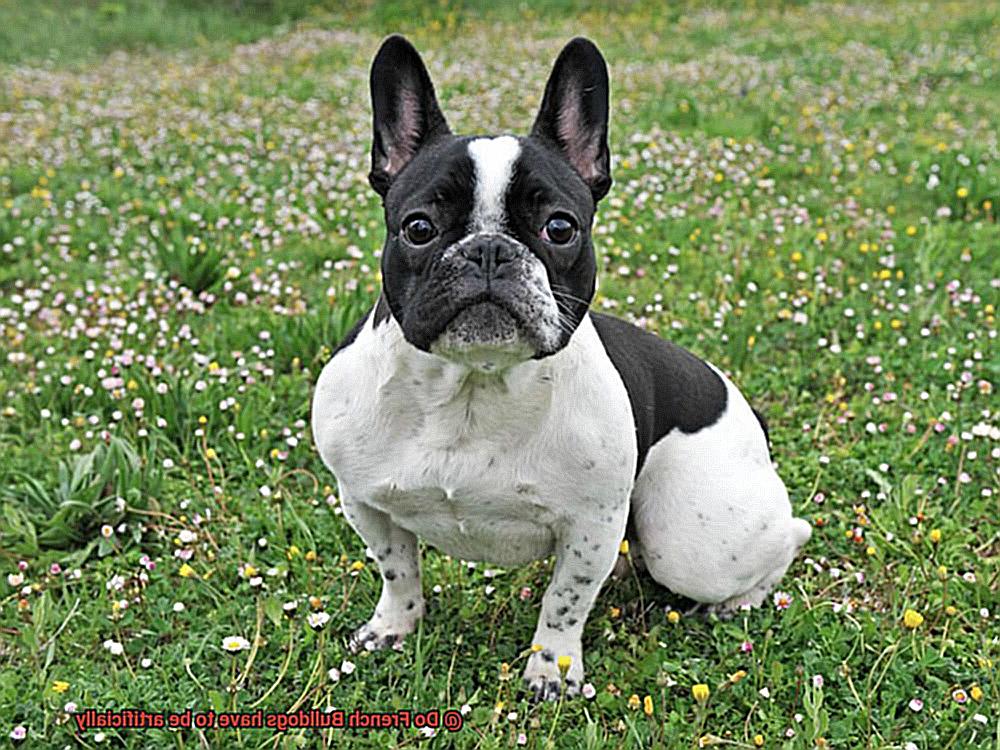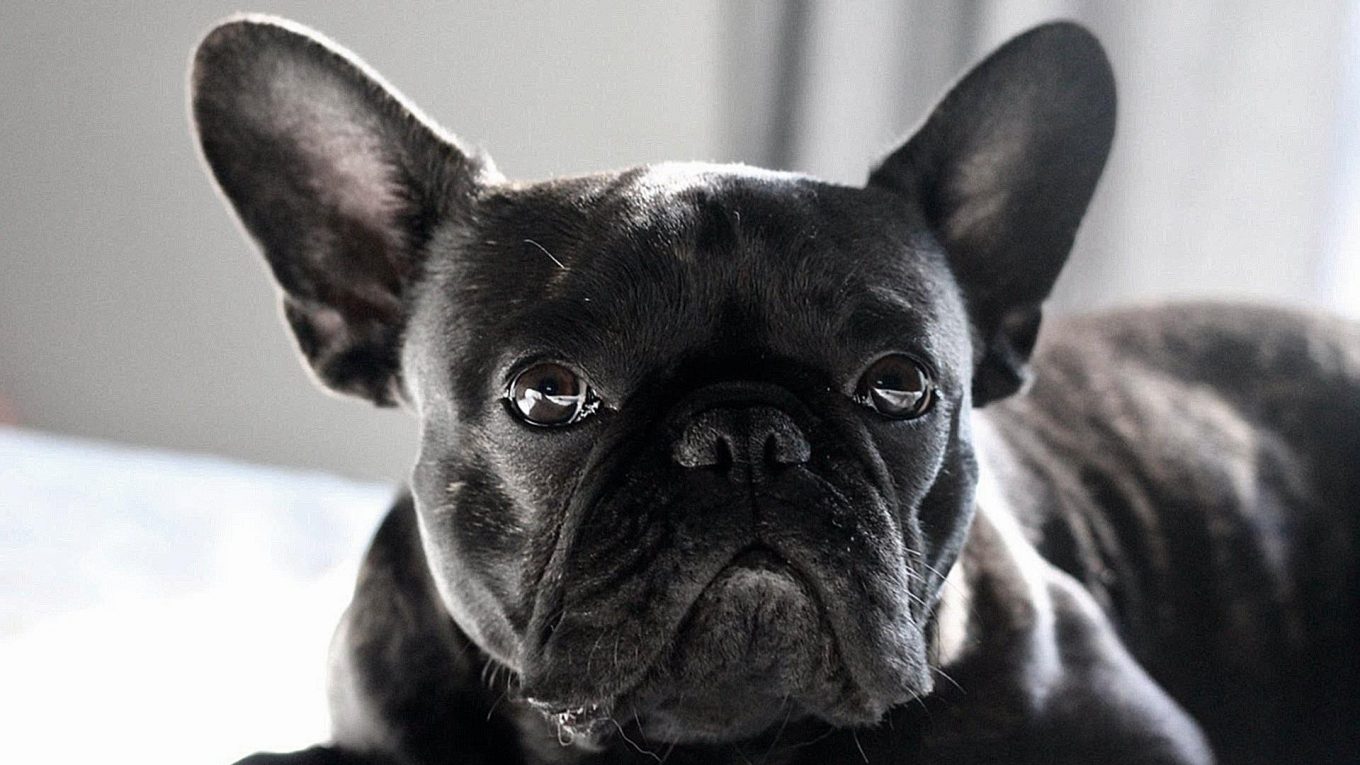Do French Bulldogs have to be artificially?
French Bulldogs have stolen the hearts of dog lovers worldwide with their irresistible charm and adorable appearance. But amidst their cuteness lies a burning question – do French Bulldogs have to be artificially inseminated? In this blog post, we’ll dive into the captivating world of French Bulldog breeding, shedding light on the process, its advantages, drawbacks, and other essential information every dog enthusiast should know.
With their compact stature and unique physical features, French Bulldogs often face challenges when it comes to natural mating due to their one-of-a-kind anatomy. Their narrow hips and bulky build make reproduction a complex endeavor. As a result, artificial insemination has become a common practice among breeders to ensure successful pregnancies in French Bulldogs.
Artificial insemination involves collecting semen from a male Bulldog and introducing it into the female’s reproductive system using various techniques. This method offers several benefits, including increased breeding opportunities, improved control over mating timing, and expansion of genetic diversity.
One significant advantage of artificial insemination is its ability to overcome geographical barriers. Breeders can now access high-quality genetic material from carefully selected males worldwide without the need for long-distance travel. This approach allows for genetic diversity, reducing the risk of inbreeding and potential health-related issues in the breed.
However, artificial insemination does come with its share of drawbacks. One downside is the cost associated with the process. Semen collection, storage, and insemination procedures can be quite expensive, making it less accessible for some breeders. Additionally, artificial insemination doesn’t guarantee a successful pregnancy every time; meticulous monitoring and expert veterinarian assistance are necessary to increase the odds of success.

It’s important to note that not all French Bulldogs require artificial insemination. Some individuals may still be able to reproduce naturally based on their specific anatomy and breeding history. However, artificial insemination has undoubtedly played a pivotal role in maintaining the long-term health and vitality of the French Bulldog breed.
In conclusion, while not an absolute requirement, artificial insemination has become a common practice among French Bulldog breeders to ensure successful breeding and preserve the breed’s unique characteristics. By embracing this technique, breeders can overcome various challenges while providing healthier and genetically diverse French Bulldogs through access to a wide gene pool.
So, next time you encounter a French Bulldog with that irresistible charm, remember the fascinating world of artificial insemination that contributes to their existence.
What is Artificial Insemination?
Contents
- 1 What is Artificial Insemination?
- 2 Reasons for Artificial Insemination in French Bulldogs
- 3 Advantages of Artificial Insemination in French Bulldogs
- 4 Disadvantages of Artificial Insemination in French Bulldogs
- 5 The Process of Artificial Insemination in French Bulldogs
- 6 Potential Risks Associated with Artificial Insemination in French Bulldogs
- 7 Tips for Successful Breeding through Artificial Insemination
- 8 Conclusion

Breeding French Bulldogs can be a rewarding experience, but it also comes with unique challenges due to their brachycephalic facial structure and compact body shape. Natural mating can be difficult or even impossible in some cases, which is where artificial insemination (AI) comes in. In this article, we will explore what AI is, why it is commonly used in the breeding of French Bulldogs, and how it can help overcome these challenges.
Why Artificial Insemination?
French Bulldogs have a distinct anatomy that can make natural mating challenging. Their small size and narrow hips can make successful mating difficult without assistance. AI provides a practical solution by allowing breeders to use selected males with desirable traits without risking potential injuries or discomfort to either the male or female dog. It also enables breeders to access genetic material from males that may not be physically present or available for natural mating.
The Process of Artificial Insemination:
The AI process begins with the collection of semen from the male dog. This can be done through manual stimulation or by using an artificial vagina designed specifically for this purpose. The collected semen is then evaluated for quality, including parameters such as sperm count, motility, and morphology.
Once deemed suitable for insemination, the semen can be used immediately or preserved for future use. Fresh semen can be directly introduced into the female’s reproductive tract, while chilled or frozen semen needs to be thawed and prepared before insemination. The timing of insemination is crucial and generally occurs during the female’s fertile period, which is determined by monitoring her hormone levels or using techniques like vaginal cytology.
Insemination techniques vary, but the goal is always to ensure that the semen reaches the appropriate location for fertilization to occur. This may involve using specialized catheters or devices like an endoscope.
Benefits and Considerations:
Artificial insemination offers numerous benefits for French Bulldog breeders. It allows them to overcome specific breeding challenges and access desired genetic traits.
Additionally, AI can help prevent the spread of certain genetic diseases or disorders by carefully selecting the donor sperm. However, it is important to note that AI should only be performed by qualified professionals with experience in canine reproduction.

Conclusion:
Artificial insemination has become a widely accepted and practiced technique in French Bulldog breeding. It provides a practical solution to overcome the challenges posed by their unique anatomy. By utilizing AI, breeders can increase the chances of successful breeding and ensure the well-being of both male and female dogs involved.

If you are considering breeding your French Bulldog, consult with a knowledgeable veterinarian or reproductive specialist who can guide you through the AI process and help you achieve your breeding goals.

Reasons for Artificial Insemination in French Bulldogs
French Bulldogs are adorable and lovable companions, but their unique physical characteristics can pose challenges when it comes to natural breeding. This is where artificial insemination comes into play. In this article, we will explore the reasons why breeders may opt for artificial insemination in French Bulldogs.
Overcoming Reproductive Difficulties:
French Bulldogs have a high rate of reproductive issues, including difficulty with natural breeding. Their short snouts and compact bodies make mating challenging. Artificial insemination allows breeders to overcome these obstacles and increase the chances of successful reproduction in French Bulldogs.
Prevention of Harm or Injury:
One of the main reasons for using artificial insemination is to prevent injury or harm to the dogs. French Bulldogs are prone to respiratory problems and can easily overheat or become exhausted during mating attempts. Artificial insemination eliminates the need for physical exertion and reduces the risk of injury, ensuring the safety and well-being of both the male and female dogs involved.
Genetic Diversity and Quality:
Artificial insemination allows breeders to choose the best genetic matches for breeding. By using frozen or fresh semen from top-quality stud dogs, breeders can ensure that desirable traits are passed on to future generations. This is particularly important in preserving the breed standard and improving overall health and temperament.
Overcoming Geographical Barriers:
Artificial insemination also allows breeders to overcome geographical barriers. They can obtain semen from stud dogs located in different parts of the world, expanding their breeding options and introducing new bloodlines into their breeding programs. This helps maintain genetic diversity and strengthens the overall health of the French Bulldog breed.
Fertility Issues in Males and Females:
Artificial insemination can be used to overcome fertility issues in both male and female French Bulldogs. In cases where a male dog has a low sperm count or poor sperm quality, artificial insemination can help increase the chances of successful fertilization. Similarly, if a female dog has reproductive issues or difficulties conceiving naturally, artificial insemination can provide a viable solution.
Advantages of Artificial Insemination in French Bulldogs
When it comes to breeding French Bulldogs, artificial insemination offers a range of advantages that can greatly benefit both breeders and their beloved canine companions. Let’s take a closer look at why artificial insemination is the preferred method for many French Bulldog breeders.
Expanded Pool of Potential Mates
With artificial insemination, breeders are not limited by geographical boundaries when choosing a mate for their French Bulldog. This means they can select from a wider pool of potential mates, ensuring that only the best and most compatible dogs are bred together. Breeders can focus on desirable traits, such as good health, temperament, and conformation, leading to healthier and more genetically diverse litters.
Safety First
Natural breeding can be physically demanding and potentially dangerous, especially for small and brachycephalic breeds like French Bulldogs. Artificial insemination eliminates the need for direct mating, minimizing the risk of injuries or complications that may arise during the mating process. This ensures the safety and well-being of both the male and female dogs involved.
Precise Timing
Timing is crucial when it comes to successful breeding. With artificial insemination, breeders have greater control over the timing of insemination. By accurately determining the optimal time based on the female dog’s ovulation cycle, breeders can increase the chances of successful fertilization. This is particularly important for French Bulldogs, as they often have irregular or unpredictable heat cycles.
Overcoming Reproductive Challenges
Artificial insemination offers a solution to various reproductive challenges that may be present in individual dogs. If a male dog has low sperm count or poor sperm quality, artificial insemination can bypass these issues by directly introducing healthy sperm into the female’s reproductive tract. Similarly, if a female dog has difficulty conceiving or carrying a pregnancy to term, artificial insemination can help overcome these obstacles by bypassing any potential reproductive abnormalities.
Preserving Valuable Genetic Material
Semen from high-quality male dogs can be collected and frozen through artificial insemination. This allows breeders to preserve valuable genetic material and use it at a later time or even transport it internationally. By maintaining genetic diversity within the French Bulldog population, breeders can facilitate breeding programs that aim to improve certain traits or address specific health concerns.
Time and Cost Efficiency
Artificial insemination can be a more time and cost-effective method for breeders. It eliminates the need for travel and accommodation expenses associated with natural breeding, especially when the chosen mate is located far away. Additionally, one male dog’s semen can be used to inseminate multiple females, maximizing the potential for successful breeding outcomes.
Disadvantages of Artificial Insemination in French Bulldogs
“The Downsides of Artificial Insemination in French Bulldogs: What Breeders Need to Know.”
Hey there, French Bulldog lovers. Today, we’re going to dive into the not-so-rosy side of artificial insemination in French Bulldogs. Don’t worry, we’ve got your back with all the need-to-know info.
- Decreased Genetic Diversity: When it comes to artificial insemination, breeders might find themselves swimming in a shallow gene pool. Limited stud options could lead to overusing popular sires, resulting in a narrower gene pool and increased risks of genetic disorders and health issues.
- Cha-ching. Higher Costs: Money talks, my friends. Artificial insemination ain’t cheap. Compared to natural breeding, it requires extra vet procedures and specialized equipment. All those expenses can put a strain on a breeder’s wallet, especially if they’re not rolling in dough.
- Timing Troubles: Frenchies are notorious for their irregular heat cycles, making timing a real headache. Achieving successful timing may require multiple attempts or hormone treatments, adding complexity and cost to the process. Who knew scheduling romance could be so tricky?
- Conception Conundrum: Brace yourself for possible disappointment. Artificial insemination doesn’t guarantee high conception rates like natural breeding does. If the semen quality is subpar or if there are issues with the breeding techniques used, you might end up feeling like Cupid missed his mark.
- Natural Selection? Not So Much: In the wild world of natural breeding, only the fittest and most compatible dogs get to pass on their genes. But with artificial insemination, that natural selection process goes out the window. This could mean that undesirable traits or health issues get passed down for generations. Yikes.
Now, before you throw in the towel on artificial insemination, remember that these disadvantages are just part of the picture. It’s crucial for breeders to weigh these factors against the potential benefits before taking the plunge.
So, French Bulldog enthusiasts, consider yourselves informed. Remember, knowledge is power when it comes to making informed decisions for your fur babies. Stay tuned for more tips and tricks for keeping your Frenchies happy and healthy. Woof out.
The Process of Artificial Insemination in French Bulldogs
The Process of Artificial Insemination in French Bulldogs
Artificial insemination is a widely used method for breeding French Bulldogs, especially when natural breeding is challenging due to health conditions or physical limitations. Let’s dive into the process and learn more about this technique that can help bring adorable French Bulldog puppies into the world.
Health Checks and Timing
Before proceeding with artificial insemination, both the male and female dogs should undergo thorough examinations to ensure their overall health and reproductive capability. This includes evaluating their fertility, checking for any genetic disorders or diseases that could be passed on to offspring, and determining the optimal timing for insemination.
Semen Collection and Evaluation
The first step in artificial insemination is collecting semen from the male French Bulldog. This is usually done through manual stimulation to produce an ejaculation. The collected semen is then evaluated for quality, including factors such as sperm count, motility, and morphology.
Insemination Techniques
There are several techniques for inseminating French Bulldogs:
- Vaginal Insemination: This method involves depositing the semen directly into the female dog’s vagina using a syringe or pipette. It is a less invasive option that can be performed without anesthesia. However, it may have lower success rates compared to other techniques.
- Transcervical Insemination (TCI): TCI involves passing a flexible catheter through the cervix and depositing the semen directly into the uterus. This technique allows for a more targeted delivery of sperm and has higher success rates than vaginal insemination.
- Surgical Insemination: Surgical insemination is typically reserved for cases where other methods have failed or when there are specific medical conditions that require surgical intervention. It involves making an incision in the female dog’s abdomen to access the uterus and directly depositing the semen.
Monitoring Pregnancy
After insemination, it is crucial to closely monitor the female dog for signs of pregnancy. This can include observing changes in behavior, appetite, and physical appearance. Pregnancy can be confirmed through methods such as ultrasound or hormone testing.
Factors Affecting Success
It is important to note that artificial insemination is not a guaranteed method of achieving pregnancy in French Bulldogs. Factors such as the overall health of the dogs, the quality of the semen, and timing of insemination can all impact success rates.
Working with Professionals
To ensure the best possible outcome, it is crucial to work with a reputable and experienced veterinarian or reproductive specialist who can guide you through the process. They will help determine the most suitable technique and provide necessary care for both the dogs and potential offspring.
Potential Risks Associated with Artificial Insemination in French Bulldogs
When it comes to breeding French Bulldogs, artificial insemination can be a lifesaver. However, it’s important to be aware of the potential risks involved. Let’s dive into some of the possible hazards that breeders should keep in mind.
- Infection: Just like humans, dogs can also develop infections. During artificial insemination, if proper sterilization techniques are not followed, there is a risk of introducing harmful bacteria or pathogens into the female dog’s reproductive tract. This can result in infections that may require medical intervention.
- Injury: French Bulldogs have unique physical traits, such as their short snouts and compact bodies. These characteristics can make it challenging to perform artificial insemination safely without causing harm to either the male or female dog involved. Careful handling and expertise are essential to minimize the risk of injury during the procedure.
- Genetic issues: Artificial insemination bypasses natural selection mechanisms, potentially allowing for the transmission of genetic disorders or health issues to future generations. It is crucial for breeders to carefully evaluate the health and genetic background of both the male and female dogs before proceeding with artificial insemination to avoid passing on any undesirable traits.
- Pregnancy complications: While artificial insemination can help breeders overcome infertility issues, there is no guarantee of a successful pregnancy. Factors such as timing, semen quality, and the female dog’s reproductive health can all influence the success rate of artificial insemination. Breeders should be prepared for the possibility of multiple attempts or alternative breeding methods if desired results are not achieved.
- Financial considerations: It’s important to consider the financial aspect when deciding to pursue artificial insemination. The procedure itself can be costly, involving fees for semen collection and processing, as well as veterinary expenses for conducting the insemination. Breeders should carefully evaluate their budget and weigh the potential risks against the benefits before making a decision.
Tips for Successful Breeding through Artificial Insemination
Breeding French Bulldogs can be challenging due to their unique anatomy. Natural mating can be difficult or even risky for these adorable pups. That’s where artificial insemination (AI) comes in. AI is a common method used by breeders to ensure successful reproduction and overcome breeding challenges. In this guide, we’ll explore the benefits of AI for breeding French Bulldogs and provide tips for a successful AI process.
The Unique Anatomy of French Bulldogs:
French Bulldogs have a compact body structure with short legs, making natural breeding challenging. Their small size and narrow hips can make it difficult for them to successfully mate without assistance. AI eliminates these risks and allows breeders to control the breeding process more effectively. By using AI, breeders can ensure that both the male and female dogs are safe during the breeding process.
Consultation with a Veterinarian:
Before proceeding with AI, it’s crucial to consult with a veterinarian experienced in reproductive medicine. They will guide you on the timing of insemination, which is crucial for a successful outcome. The veterinarian will monitor the female’s estrus cycle and determine the optimal time for insemination based on hormone levels and other factors. This expert guidance is essential to maximize the chances of a successful breeding.
Health Examination:
To ensure a successful AI process, both the male and female dogs should undergo a thorough examination by a veterinarian. Any underlying health issues can negatively impact the success of breeding. The veterinarian will assess their overall health, rule out any potential problems, and recommend appropriate treatments if necessary. Ensuring the health of both dogs is crucial for achieving healthy and thriving litters through AI.
Preparing for AI:
In preparation for AI, the male dog will need to produce a semen sample. This can be collected through manual stimulation or by using an artificial vagina under veterinary supervision. The semen sample is then evaluated for quality and motility. If necessary, it can be extended or processed to increase its chances of fertilizing eggs. Proper collection and evaluation of semen are essential for a successful AI process.
The AI Procedure:
The process of insemination requires precision and careful handling. It can be performed using fresh or chilled semen, depending on the circumstances. The veterinarian will introduce the semen into the female’s reproductive tract using a sterile catheter or syringe. This procedure should be performed by a trained professional to minimize any potential risks. Following the proper AI procedure increases the chances of successful fertilization.
_RTuq_IOoh0″ >
Conclusion
In conclusion, it is not necessary to artificially inseminate French Bulldogs in order for them to reproduce.
While artificial insemination can be used as a method of breeding, it is not the only option available. Natural mating between male and female French Bulldogs can still result in successful pregnancies and healthy puppies.
Ultimately, the decision to use artificial insemination should be made in consultation with a veterinarian who can assess the specific needs and circumstances of each individual dog.




